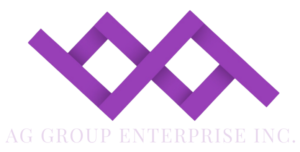Retirement is a significant life milestone that many of us eagerly anticipate. It’s a time when we can finally bid farewell to the daily grind and enjoy the fruits of our labor. However, one big question remains: How much money do we need to retire comfortably in Canada?
While there’s no one-size-fits-all answer, we are going to guide you through the key factors to consider when calculating your retirement fund in the Great White North.
The Canadian Retirement Landscape
Before diving into the numbers, it’s crucial to understand the Canadian retirement landscape. Canada’s retirement system is a mix of public and private provisions, with the government’s Canada Pension Plan (CPP) and Old Age Security (OAS) both playing a significant role in helping you reach your retirement goals. While these government programs provide a foundation, they are rarely sufficient to sustain a comfortable retirement on their own.
Define Your Retirement Goals
The first step in determining how much money you need to retire in Canada is to define your retirement goals. Consider factors such as when you want to retire, the lifestyle you envision, and any special plans or dreams you have. Do you want to travel extensively, buy a vacation home, or simply maintain your current standard of living? Your retirement goals will have a substantial impact on your financial requirements.
Estimating Your Retirement Expenses
To calculate how much money you need to retire, it’s crucial to estimate your retirement expenses. Consider the following:
- Basic Living Expenses: Start by determining your expected monthly expenses for essentials like housing, groceries, utilities, insurance, and transportation. Don’t forget to account for inflation.
- Healthcare Costs: As you age, healthcare expenses tend to increase. Be sure to include costs for medical insurance, prescriptions, and potential long-term care.
- Lifestyle Choices: Factor in expenses related to hobbies, travel, dining out, and entertainment. These expenses can vary widely from person to person.
- Debt and Taxes: If you have outstanding debts or anticipate paying taxes in retirement, include these in your calculations.
- Inflation: Over time, the cost of living rises due to inflation. Plan for this by assuming a conservative annual inflation rate.
Government Benefits: CPP and OAS
Canada’s public pension programs, the Canada Pension Plan (CPP) and Old Age Security (OAS), provide a safety net for retirees. However, their benefits are not designed to fund a luxurious retirement on their own.
The amount you receive from CPP depends on your contributions during your working years and the age at which you start receiving benefits. As per the Government of Canada, For 2023, the maximum monthly amount you could receive if you start your pension at age 65 is $1,306.57. The average monthly amount paid for a new retirement pension (at age 65) in April 2023 was $760.07. Your situation will determine how much you’ll receive up to the maximum. Delaying CPP until age 70 can result in a higher monthly benefit.
OAS provides a basic monthly pension to Canadians aged 65 and older. According to the Government of Canada, the maximum monthly OAS benefit in 2023 for ages 65 to 74 was $698.60.
Pension Plans and Savings
In addition to government benefits, many Canadians have workplace pension plans and personal savings, such as Registered Retirement Savings Plans (RRSPs) and Tax-Free Savings Accounts (TFSAs). These can significantly boost your retirement income.
- Workplace Pension Plans: If you have a defined benefit (DB) or defined contribution (DC) pension plan through your employer, it will contribute to your retirement income. The specifics of your plan will determine how much you receive.
- RRSPs: RRSPs are tax-advantaged accounts that allow you to save for retirement. Contributions are tax-deductible, and investments grow tax-free until withdrawal.
- TFSAs: TFSAs provide tax-free growth and withdrawals, making them an excellent option for saving for retirement. They offer flexibility and can be used to supplement other retirement income sources.
Investments and Portfolio Growth
To estimate how much money you need for retirement, you must also consider the growth of your investments. Historically, a diversified investment portfolio has yielded an average annual return of around 7% after adjusting for inflation. However, past performance is not a guarantee of future results.
When planning your retirement, consult with a financial advisor to create an investment strategy tailored to your risk tolerance and goals.
Inflation and Longevity Risk
Two significant risks to consider in retirement planning are inflation and longevity risk. Inflation erodes the purchasing power of your money over time, meaning you’ll need more money to maintain your lifestyle. Longevity risk refers to the possibility of outliving your savings.
To mitigate these risks, it’s essential to invest wisely and consider purchasing an annuity or insurance products that provide a guaranteed income stream for life.
Adjusting for Regional Differences
Canada is a vast country with varying costs of living depending on where you reside. The cost of housing, for example, can differ significantly between major cities and smaller towns. When calculating your retirement needs, factor in regional differences to ensure your estimates are accurate.
Planning for Contingencies
Life is unpredictable, so it’s wise to plan for contingencies in retirement. This could include unexpected medical expenses, home repairs, or financial support for family members. Building an emergency fund as part of your retirement plan can provide peace of mind.
Seek Professional Guidance
Calculating how much money you need to retire in Canada is a complex task. It involves assessing your financial situation, considering various sources of income, estimating expenses, and accounting for potential risks. Navigate through this process successfully with the help of AG Group’s Financial Advisors.
Retiring comfortably in Canada requires careful financial planning and a realistic assessment of your retirement goals and needs. While government benefits like CPP and OAS provide a foundation, most Canadians will need to supplement their retirement income with personal savings, workplace pension plans, and investments. It’s essential to consider factors such as inflation, regional cost differences, and the potential for unexpected expenses.
Remember that there is no one-size-fits-all answer to the question of how much money you need to retire in Canada. Your unique circumstances and retirement goals will dictate your financial requirements. Seeking professional advice and regularly reviewing your retirement plan can help ensure you are on track to enjoy a financially secure and fulfilling retirement in the Great White North.
Contact us today for a free consultation with our Financial Advisers and start your retirement journey today!



